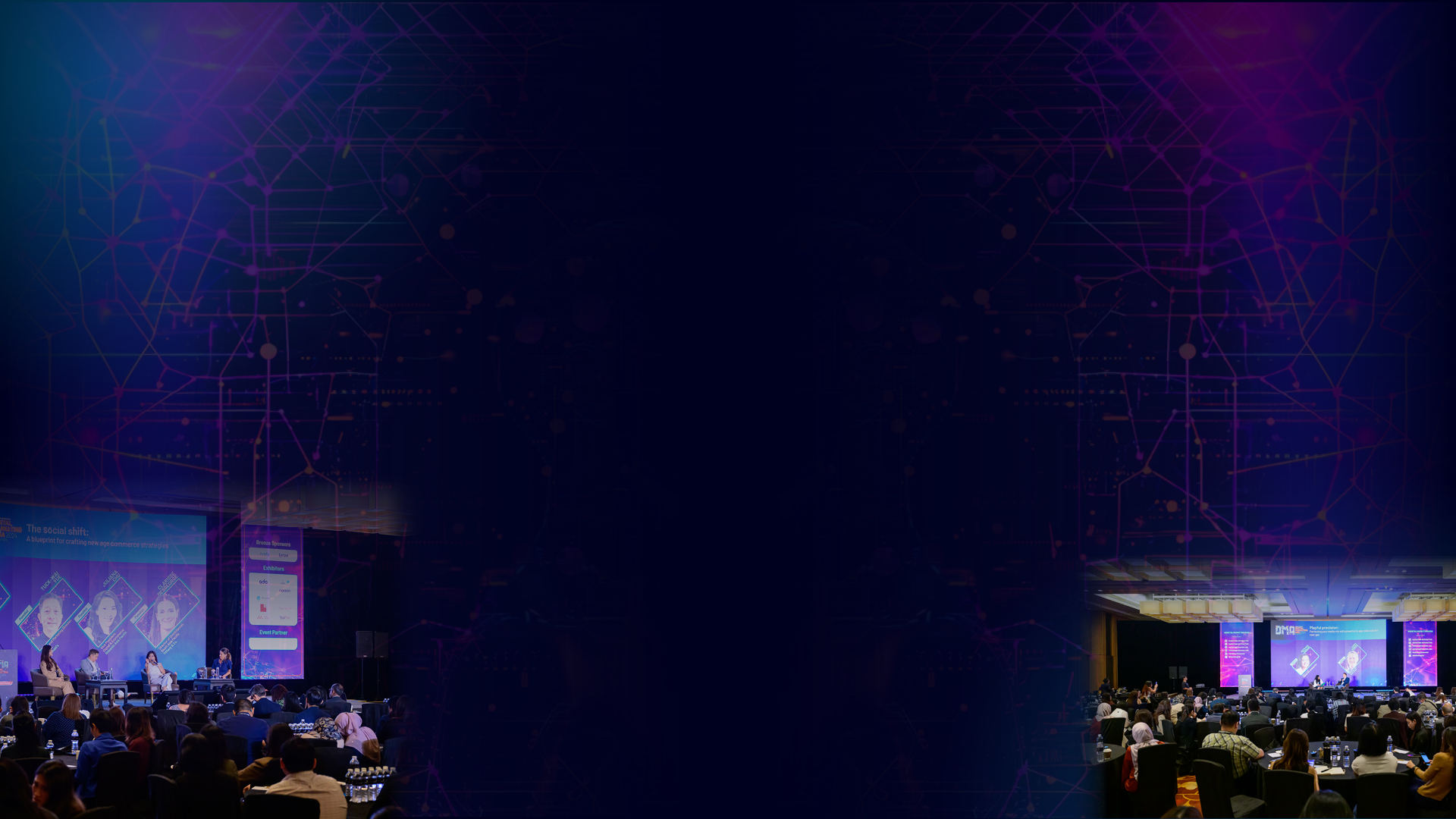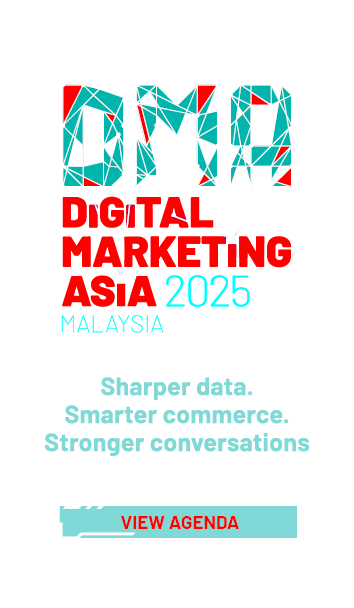



Interview: Why vending machines are more than just a place for snacks in marketing
share on
When it comes to OOH marketing, one of the first few activations that typically come to mind are billboards and ads on public transports. However, another readily available channel is the vending machine, which has become more than just a means of convenience for snacks and drinks. In fact, ATLAS Vending, a Malaysia and Singapore-based vending machine solutions provider, has seen a rise in the usage of vending machines and so has the advertising and marketing industry as a whole. In fact, the company is also beginning to cross categories and product segments in vending retail, compared to just conventional drinks and snacks in the past.
Retail brands are also moving into the vending space, ATLAS said, one of the signs that denotes how strongly vending, as a channel, is growing. CEO Santharuban Thurai Sundaram (pictured right) told A+M in an interview that it has worked with several partners such as SC Johnson, Pepsi, Tropicana, and FWD Takaful. ATLAS is the vending machine operations of Advend Systems which was acquired by Etika late in 2019. Sundaram was later appointed to his role last year.
"We've not worked on many partnerships in the past, so having some successful collaborations are an achievement and milestone for us," he said. He attributed the increase in brand partnerships to the pandemic, where safe distancing regulations caused most consumers to be spending most of their time at home. ATLAS has also seen a spike in sales, with this trend being more evident in high-rise residences with younger and more affluent consumers who are always on the go, Sundaram said. He added:
Consider a billboard as an ATL platform and sampling as a BTL platform. Now consider it via a vending machine, as a brand, you technically get both.
Vending machines offer visibility coupled with the ability to directly land the brand's products into consumers' hands, he said. A key example is the recent activation ATLAS carried out together with household cleaning supplies company, SC Johnson, where all allocated samples for its Family Guard disinfectant spray were given out every day, showing how engaged consumers were. SC Johnson was looking to target the general public and deployed the ATLAS TryBots, which ran automated sampling at high-traffic locations such as malls.
The ATLAS TryBot was launched in the fourth quarter of this year and leverages on automated sampling to enhance the traditional retail experience. Not only does it allow for prominent branding, the bot also touts ease of data collection and stock management control. As a result, Sundaram said the team was able to identify the target segments of the consumers who actually retrieved the samples, which helped with retargeting and data analysis.
Aside from SC Johnson, a few other FMCG brands, including F&B brands, also showed interest in automated sampling. Amy Gan (pictured), head of marketing and ancillary business, told A+M that the F&B industry, in particular, requires automated sampling because consumers are very concerned about the handling of samples by promoters, especially during this period. One of the advantages of automated sampling is that the machine is able to run 24/7, and the system can help capture personal data for retargeting. Additionally, machine sampling also offers better stock control as the stock input and output are all documented, Gan said.
According to her, vending machines are traditionally seen to be very manual and typically perceived to be only selling beverages and snacks, a misconception that ATLAS wants to change. "In fact, we would like to move away from the term ‘vending machine’ and transition to automated retailing, as that defines what we do better," Gan said, adding:
We hope the TryBot will potentially contribute 10% of our future revenue stream.
Creating an on-ground presence at the fraction of the cost
"Vending presents an opportunity for brands to have an on-ground presence, with a fraction of the cost vis-à-vis a typical brick and mortar outlet," Gan explained. In ATLAS' case, it is constantly seeking breakthrough technology that will allow it to create a more personalised and seamless purchasing experience. At the same time, the need for a contactless buying experience has become more important now and Gan said a vending retail experience presents just that.
In the case of beverage company Tropicana, it worked with ATLAS to run time-bound promotions during Ramadan. Through the use of technology, ATLAS was able to drop its prices specifically during the buka puasa period to provide relevance to consumers. By using dynamic pricing on its vending machines, ATLAS was able to change the pricing by the hour, something which Gan said might not have been possible for a retail store to execute as easily.
Pre-COVID, Tropicana typically ran product sampling during Ramadan to ensure top of mind. With restrictions in place, using vending as a channel to launch its Ramadan promotions benefited the brand without a doubt. "Although it was unable to conduct sampling, Tropicana was able to keep the brand top of mind via this promotion and continued to drive trials with the promotional prices," she said.
Aside from Tropicana and SC Johnson, ATLAS also partnered with FWD Takaful, which targeted individuals from the B40 category to market and sell its insurance. the activation with FWD Takaful was an interesting one and since ATLAS has a strong reach in industrial locations, advertising on its machines allowed FWD Takaful to target its communications at lower-income blue-collared workers.
Additionally, ATLAS also ran on-pack stickers for FWD Takaful on its products. Aware that the insurer wanted to create awareness on how accessible insurance packages can be for the lower-income groups, Gan said ATLAS leveraged its point of sales to draw comparisons between the cost of the monthly premiums and the price of the beverage, to highlight the affordability of the vending machines.
When asked if there's an optimal time period that brands should advertise on vending machines to maximise their investment, Gan explained that it boils down to the objective and the location. For example, if the aim is to market a new product in a college, we would recommend a shorter duration, say three months, as technically you would be hitting the same crowd to introduce a product which they have likely already tried in the last three months," she explained. The situation, however, would differ for machines in malls where the crowd is constantly changing.
Expansion and marketing plans
While Etika only acquired ATLAS in recent times, the company has been around since 1980 and is headquartered in Malaysia with an office in Singapore. According to the company's website, it has "the largest geographical footprint" in the Asian region.
Sundaram said it is focused on growing and continuously retaining its position as the largest F&B vending operator across Malaysia and Singapore. "We believe in ensuring our core is strong, and in building as well as strengthening our technology pillar, to bring forth more innovative solutions," he added. There are also plans to expand into other markets, with ATLAS looking to closer markets due to proximity.
In 2022, it plans to continue putting forth campaigns that can showcase the importance and innovativeness of vending machines in enabling businesses or providing convenience to consumers. According to Sundaram, social initiatives that centre around accessibility to different communities as well as sustainability initiatives to benefit all communities are efforts that ATLAS is planning for.
In November, for example, ATLAS tied up with the Malaysian Association for the Blind for a pilot programme for vending machines specially equipped with additional assistive features to enable accessibility for visually-impaired customers. A total of 11 machines were rolled out around LRT stations and the Brickfields area, with the identified locations being places where the visually-impaired travel for work or social purposes.
Meanwhile, for Gan, social and environmental sustainability remains an important agenda on her plate as she continues to work with the team to build the ATLAS brand on both the B2C and B2B fronts. The pandemic has certainly been a great learning lesson for many marketers and Gan said engagement is the new currency.
"It’s not just about eyeballs, it's how we personalise, customise a certain experience that will increase our affinity and relatability as a brand to consumers. In the past, I relied a lot on media channels, but now in ATLAS, we are both a brand and a media channel," she explained. This is therefore a unique experience for her as while Gan managed many brands, she said managing a consumer touchpoint is new to her as well.
More of the interview here:
A+M: What are some marketing trends the industry should keep a lookout for in 2022?
Gan: With the rapid advancement of tech and changes in how consumers consume media, reaching out to them will be a challenge and the path will continue to evolve.
In my humble opinion, advertising to consumers will see a faster decline with content consumption continuing to thrive.
So we will see more content and a lot more creativity from advertisers who successfully walk that thin line.
A+M: What innovations are you excited about?
Gan: The Internet of Things. The opportunity for marketers in bridging digital and physical, obviously the "connected consumer" who is becoming hyper-connected once you start adding devices in the Internet of Things, is a great source of data for marketing. Additionally, the usage of the Internet of Things in marketing also enables marketers to provide highly contextual and tailored messages to consumers. For instance, in connection with digital signage in physical situations such as in stores or via mobile or other devices in digital interactions. One of the aspects is facial recognition, and we’re working with technology partners to get it launched in Singapore in 2022.
Related articles:
ATLAS incorporates Braille into OOH vending machines which double up as ad spaces
Post-pandemic tourism: Expect extreme competition amongst survivors
share on
Free newsletter
Get the daily lowdown on Asia's top marketing stories.
We break down the big and messy topics of the day so you're updated on the most important developments in Asia's marketing development – for free.
subscribe now open in new window
